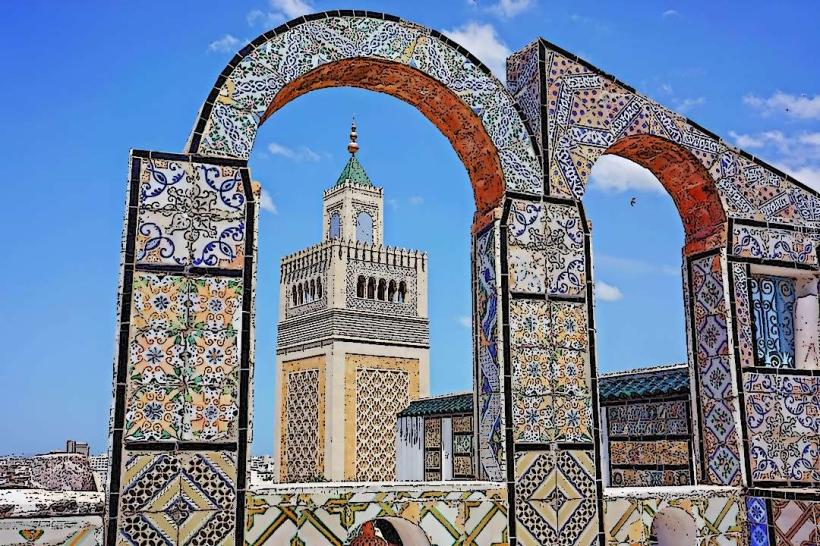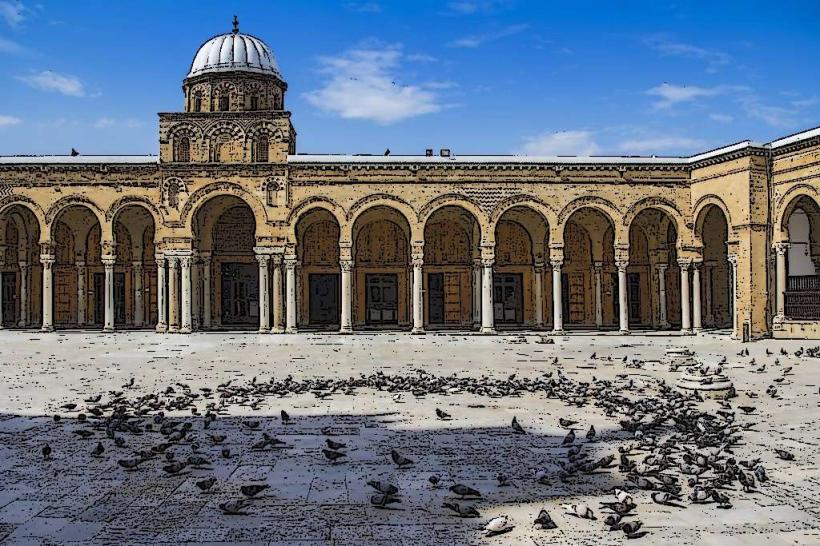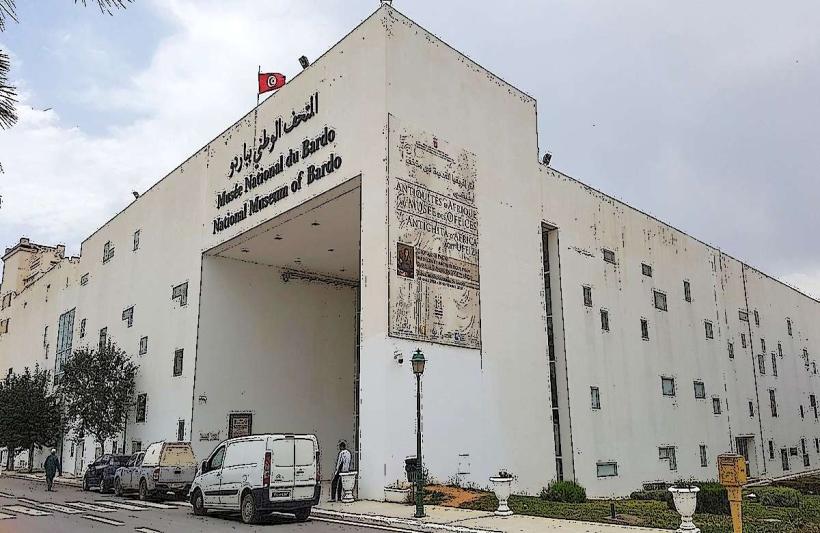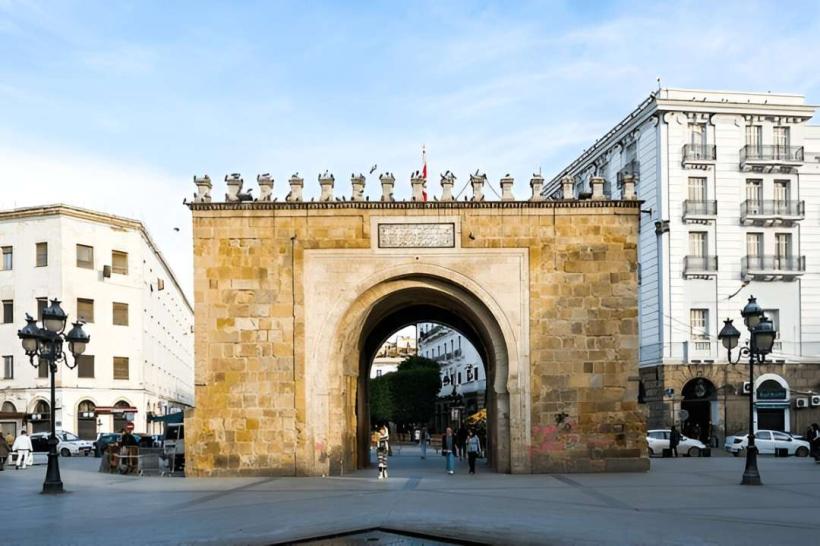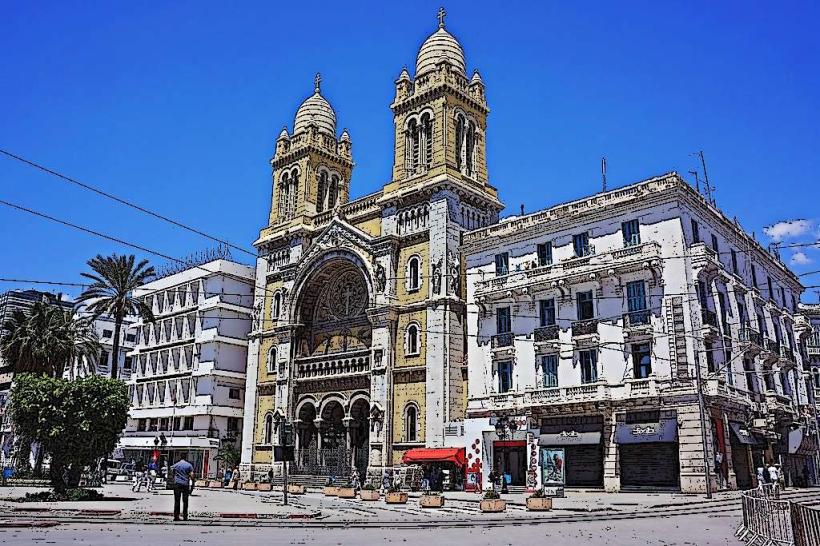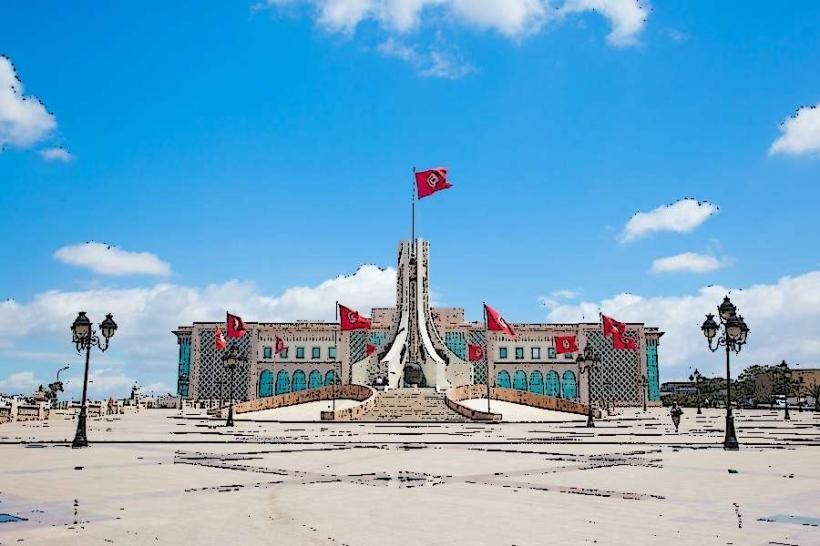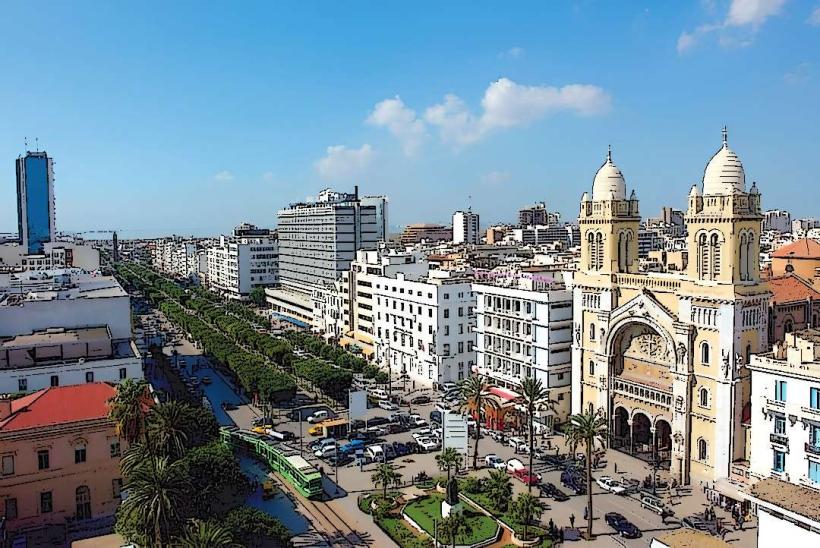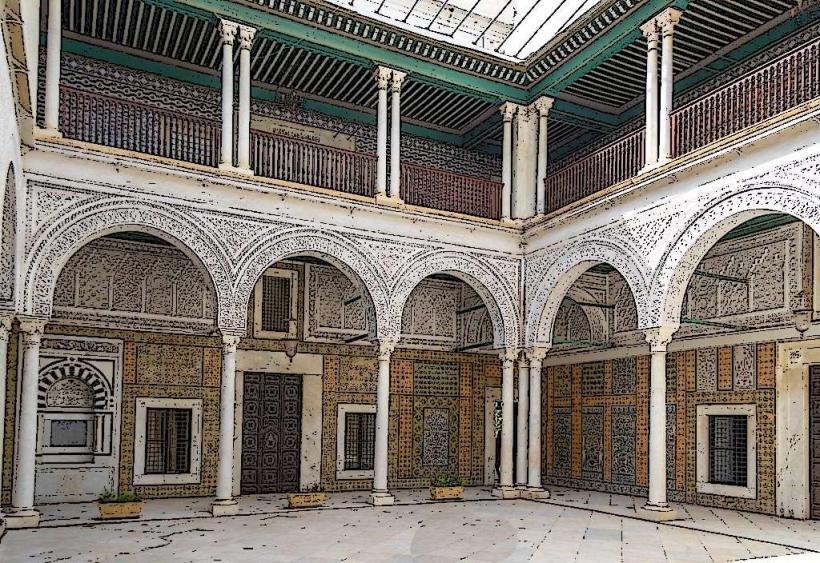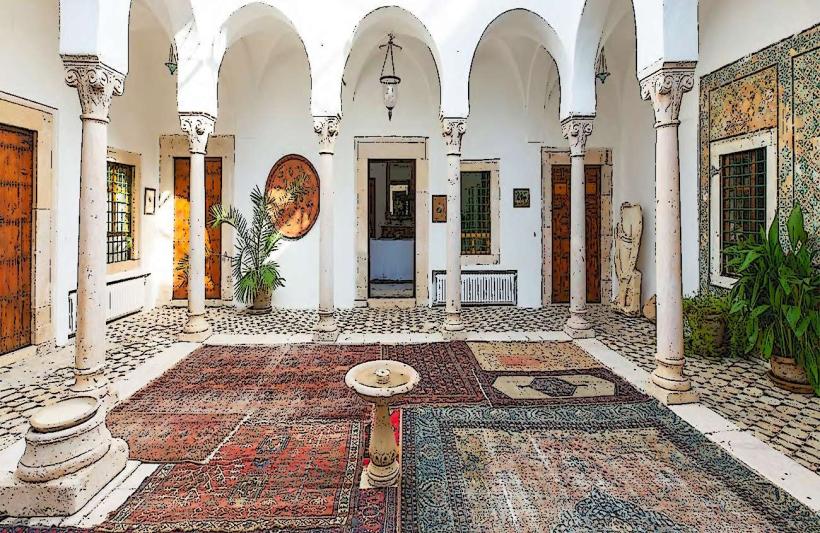Information
Landmark: Dar Ben Abdallah MuseumCity: Tunis
Country: Tunisia
Continent: Africa
Dar Ben Abdallah Museum, Tunis, Tunisia, Africa
Dar Ben Abdallah Museum is a historic palace turned museum located deep within the Medina of Tunis, Tunisia’s ancient walled city. It offers a unique and richly detailed glimpse into the aristocratic urban life of Tunis during the 18th and 19th centuries.
Here is a detailed overview:
Historical Background
Dar Ben Abdallah was originally constructed in the 18th century.
It belonged to Mohamed El Bradai, a wealthy Tunisian official, before being acquired by Mohamed Tahar Ben Abdallah, a prosperous merchant in the early 20th century, from whom the palace takes its current name.
In 1964, the Tunisian government purchased the house and later transformed it into a museum.
In 1978, Dar Ben Abdallah was officially opened as a branch of the National Heritage Institute, under the name "Museum of Popular Arts and Traditions of Tunis".
Architectural Features
Dar Ben Abdallah is a magnificent example of traditional Tunisian palace architecture, centered around two main courtyards (one for family life and one for receiving guests), surrounded by richly decorated rooms.
The design follows the classic "Dar" style, characterized by:
High whitewashed walls with little exterior decoration, preserving privacy.
Ornate interior decoration, including zellige (colored tilework), stucco carvings, painted wooden ceilings, and marble floors.
Arched doorways, lush inner gardens, and delicate balconies.
The layout strictly separated private family spaces from the public spaces for receiving male visitors, reflecting the social norms of the period.
Museum Exhibits
The museum is dedicated to showcasing traditional urban life in Tunis during the 18th and 19th centuries.
Its rooms have been carefully restored and furnished with period furniture, clothing, utensils, jewelry, and artifacts to recreate the atmosphere of aristocratic domestic life.
The exhibits are arranged thematically across different rooms:
Reception Room (Salamlek): Where the master of the house would receive important male guests.
Family Living Quarters (Haramlek): More intimate spaces that display daily life, family gatherings, and female-dominated activities.
Wedding and Ceremony Rooms: Featuring traditional bridal costumes, gold jewelry, musical instruments, and ceremonial furniture.
Children's Room: Displaying educational tools and toys from the era.
Craftsmanship Displays: Featuring embroidery, pottery, and metalwork, emphasizing the artisanship of the time.
The museum also highlights social customs such as marriage rites, hospitality, and family structure, offering insights into the cultural fabric of urban Tunisian society.
Cultural and Historical Significance
Dar Ben Abdallah preserves a precious memory of the daily life of the Tunisian bourgeoisie before the profound changes brought by modernization and colonial influence.
It serves as an important center for the study and promotion of Tunisian cultural heritage, particularly of the rich and complex society of Tunis before the 20th century.
The museum helps visitors understand not only the artistic tastes of the time but also the rigid social hierarchies and gender roles that structured life in the medina.
Location
Dar Ben Abdallah is located in the southern part of the medina, not far from other major sites like the Zitouna Mosque.
The museum can be accessed by navigating the narrow, labyrinthine streets typical of the medina, enhancing the experience of stepping back into history.
Notable Aspects
Authenticity: Unlike many museums, Dar Ben Abdallah preserves the actual setting of an aristocratic home, giving a genuine sense of lived experience.
Decorative Arts: The intricate craftsmanship of the tilework, woodwork, and textile arts on display is exceptional.
Educational Value: It provides a comprehensive look into the values, daily routines, and celebrations of Tunisian urban society during a key period of its history.
Atmosphere: Walking through Dar Ben Abdallah feels like being a guest in a wealthy family’s home centuries ago, surrounded by the beauty and elegance of old Tunis.
Dar Ben Abdallah Museum is a must-visit for anyone interested in the social history, traditional culture, and fine arts of Tunisia, offering a beautifully preserved window into the life of a bygone era.

